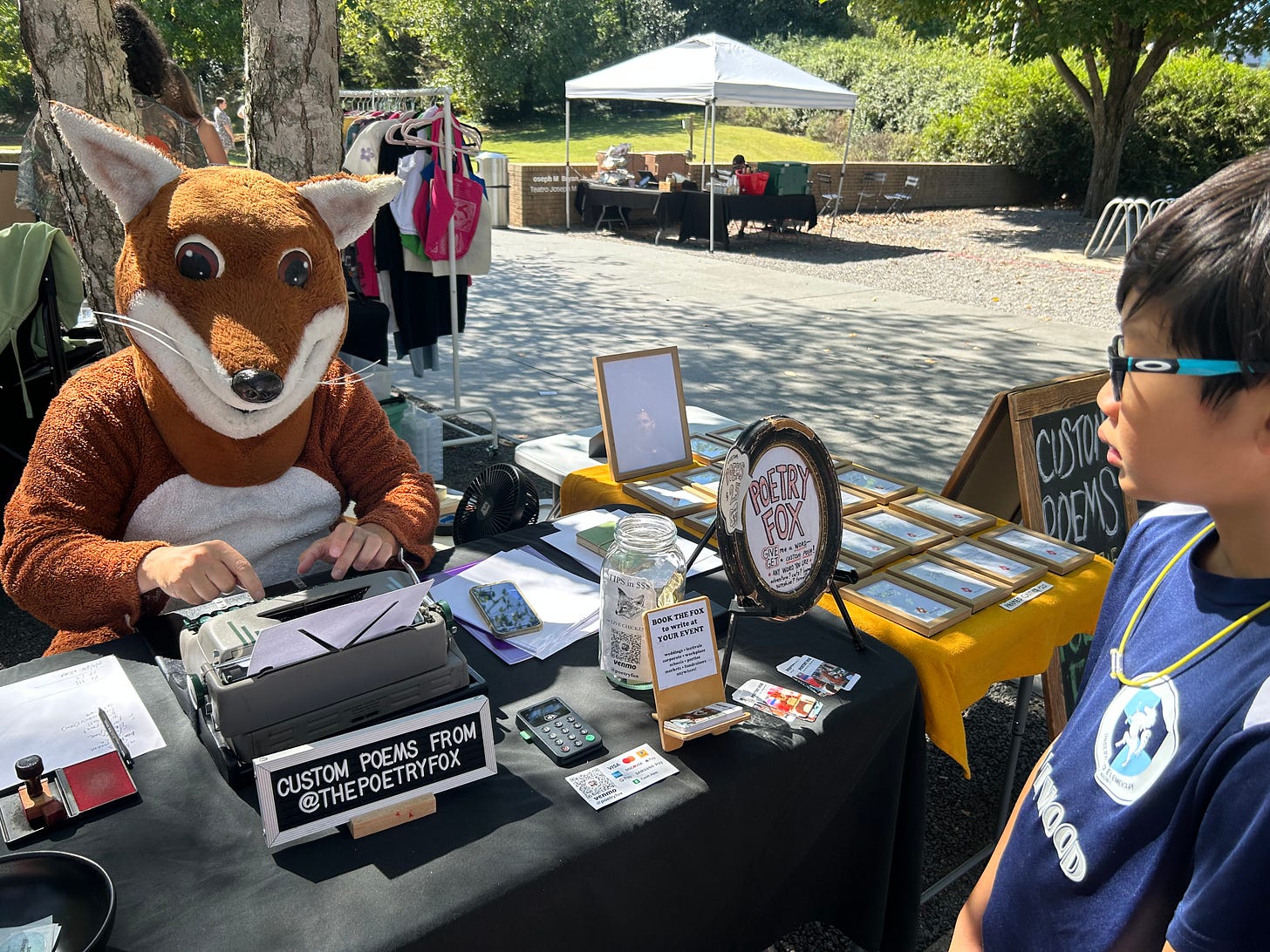On a recent sunny Saturday afternoon, my 10-year-old son and I stumbled upon a local artist’s market at the NC Museum of Art and noticed a guy dressed in a fox suit sitting at a table in front of a manual typewriter. Upon closer examination I learned that we were in the presence of the Poetry Fox. You give Poetry Fox one word and he will on the spot create a poem for you on his manual typewriter and present you with a poem based on that word.
And since my son was with me, we asked him to compose a poem about his current obsession – Pokémon, the long-running Japanese animated series and card game. Poetry Fox got down to business and within a few minutes, had banged out on his typewriter an original poem about finding the pervasive yellow Pokémon known as Pikachu in the most unusual of places. We were enthralled with the experience and happily paid the small fee for this little gem of performance art and artistic output.
I found this encounter fascinating, not only because I have tried my hand at writing poetry and consistently fallen short of unique and cogent ways to express myself in this confounding art form. But with AI enabling us to write anything from an e-mail to practically whole novels, I have been pondering the future of creative expression and the human experience in the age of AI. I have to admit the encounter with Poetry Fox (née Chris Vitiello) left me feeling optimistic and hopeful for entrepreneurial enterprises in the face of an AI tsunami. While one could argue that AI could generate a poem much faster and maybe more eloquently than Poetry Fox, I’d pay to see a real human dressed in a fox suit banging out poems on a manual typewriter versus a robot-generated AI poem any day! And if you don’t believe me, Poetry Fox is available for booking at your next wedding or social event.
Why is this important? Gal Zauberman of the Yale School of Management explains that experiences generate lasting value through memories, unlike products, which lose appeal over time. The reasoning is a bit complicated, but apparently the way we construct memory is the same way we imagine the future (e.g., telling stories of the past informs the stories of the future). And because experiences solidify memories and relationships, we prefer and value those, sometimes even over facts and data. Where am I going with this? Because our memories shape how we view the future, authentic experiences - like a memorable outing with your child - enrich our lives more than material possessions or digital simulations. And so the more your business venture can incorporate memorable experiences (think about excursions, celebrations, special events), the more valuable you will be seen in the eyes of your partners, employees, and investors.


